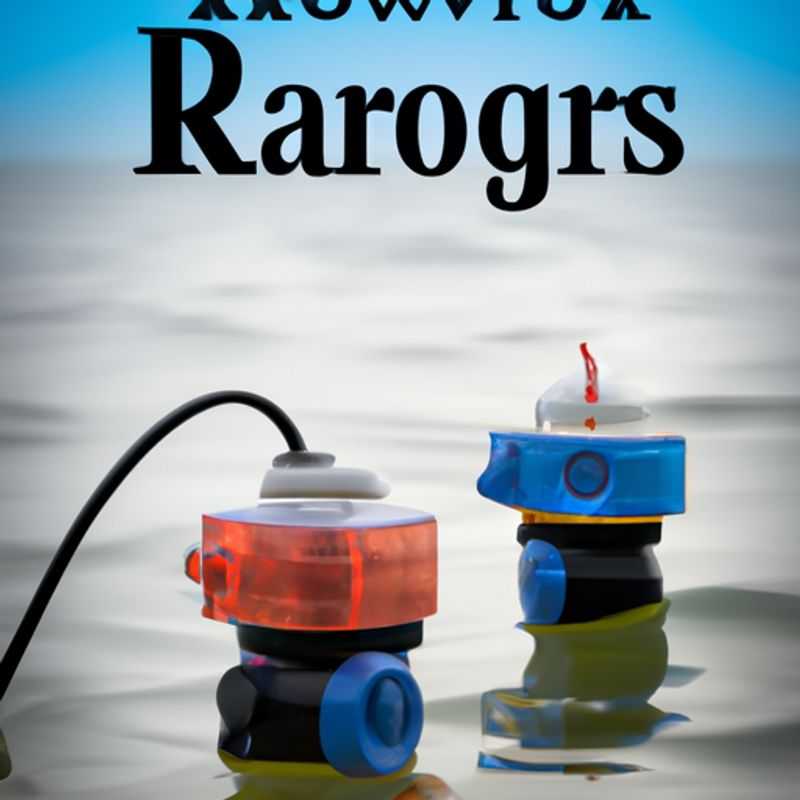5 Tips for Safe Online Shopping: Navigating the Waters of Waterproof Servos for RC Boats

5 Tips to Navigate the Waters of Safe Online Shopping for Waterproof Servos
Hey there, fellow RC enthusiasts!

Don't Get Scammed! How to Make Sure Your Website is Safe Before You Buy
Hey there, fellow shopper! You know, the digital world can be a wild place, especially when it comes to online shopping. We all want to make sure our purchases are safe and secure, right? So, let’s take a quick look at a few key things to watch out for.
First, that little lock icon in the address bar - that's your friend! A website with HTTPS instead of HTTP means the connection is encrypted, like a secret code that protects your information. Think of it as a virtual bodyguard for your credit card details.
Second, always check that website address carefully. Scammers often try to mimic legitimate websites with slight variations in the name. Be especially mindful of strange URLs that look suspiciously similar to trusted brands.
Lastly, if you're unsure, always do a quick search on Google or a trusted review site. See what other shoppers are saying! Reviews can be a goldmine of information about a website's security and reliability.

Credit vs. Debit: Why Your Wallet Might Be Safer with Plastic
Okay, buckle up, shopping enthusiasts! We're talking about credit cards vs. debit cards and why a credit card might be your best friend on your next shopping adventure. While both have their uses, credit cards offer a crucial layer of protection that your debit card just can't match.
Think of it this way: your debit card is directly linked to your checking account. That means every purchase you make instantly deducts money from your account. Yikes, what if your card gets lost or stolen? A thief could go on a shopping spree before you even realize what's happened, leaving you with a depleted bank account and a mountain of paperwork to deal with.
Here's where credit cards shine: They act as a shield between you and your bank account. When you use a credit card, you're essentially borrowing money from the card issuer. You're responsible for paying it back, of course, but if your card gets compromised, you're protected by something called "zero liability". This means that, in most cases, you won't be held responsible for unauthorized purchases made on your account. You just need to report the fraud and the card issuer will handle the rest.
Plus, credit cards often come with perks like rewards points or cash back programs. Talk about a win-win! While debit cards might offer some basic protection, they often lack the comprehensive safeguards of a credit card.
So, before you whip out your debit card, consider the extra protection a credit card offers. It might just save you a lot of stress and hassle down the road. Happy shopping!

Don't Buy Blind! Read Reviews and Ratings Before You Click "Add to Cart"
Before you buy anything online, checking reviews and ratings is like peeking into the minds of people who've already been there. You're getting the inside scoop on whether a product lives up to the hype or if it's more of a let-down. Think of it as a shortcut to avoiding buyer's remorse!
These reviews are more than just words; they're real experiences that can help you make smarter choices. They're like mini-adventures shared by fellow shoppers, revealing hidden details you might not have considered.
A "five-star" review might tell you that a new pair of shoes is comfy enough for marathon shopping trips, while a "one-star" review could warn you about a product that's prone to breaking. Look for reviews that are detailed, specific, and even funny. Those are the ones that offer true insights!

Returns & Refunds: A Buyer's Guide to Seller Policies
Ever found yourself eyeing a fantastic deal on a website, only to realize the return policy is a bit...murky? You're not alone! Understanding a seller's return policy is crucial before you hit that "Buy Now" button. This little piece of information can save you a lot of stress and potential headaches down the line.
Think of the return policy as a safety net. It tells you what your options are if you're not happy with your purchase. For example, some sellers offer free returns, while others may charge a restocking fee. Some sellers might even have a time limit on returns, so make sure to check how long you have to return an item.
The return policy is usually found on the seller's website, often in the "Help," "Support," or "Shipping & Returns" section. Take a few minutes to read through it – it's a small investment for a potential big saving!
Knowing the return policy upfront can help you avoid surprises later. It's a simple step that can give you peace of mind and a more enjoyable shopping experience.

If It Seems Too Good to Be True, It Probably Is: Spotting Fake Deals
Ever stumbled upon a deal that screams, "Buy me, buy me!" It's tempting, like finding a hidden oasis in the desert. But hold on, savvy shopper! Deals that are too good to be true often are.
Imagine you're exploring a bustling marketplace, and a vendor offers you a rare artifact for a bargain price. It's a thrill! But, before you commit, ask yourself: Is this genuine? Always check the source, the seller's reputation, and the product's authenticity. It's better to be safe than sorry.
Beware of deals with limited time offers or urgent pressure tactics. These can be red flags. Take your time, research, and compare prices before you buy. Remember, you're the master of your own shopping journey.
